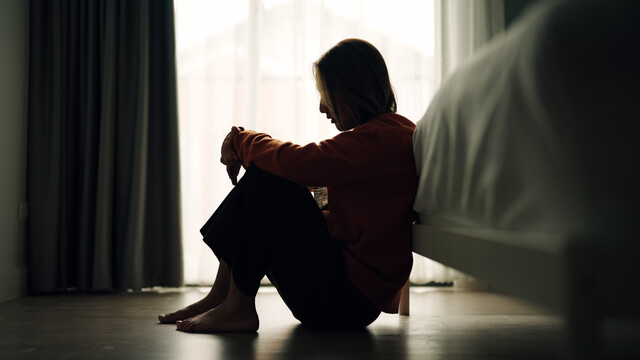When discussing social anxiety, shyness often comes up. Many people think that those with social anxiety are merely shy, or introverted, or awkward, or virtually any other such label that they can think of that is associated with social anxiety. These other labels attached to social anxiety may sometimes be a part of it; sometimes it is just used as a substitution by those who don't really know what social anxiety is. Saying that someone with social anxiety is shy is not an entirely false statement, yet it is not a truly apt description.
Shyness and social anxiety, regardless of the details of each, are often intertwined to some degree. The two cross paths often enough that it is easy to forget that they are not necessarily the same thing. In trying to help those with social anxiety, and trying to help yourself, it is best to understand what those details are. In addition to formally defining what shyness is, this article will delve into the similarities and differences between shyness and social anxiety, as well as the other labels and personality traits that are associated with both. The effects social anxiety and shyness have on one another will also be discussed.
Shyness is closer to specific social anxiety than general social anxiety. Most people who exhibit shyness will only be shy in one aspect of their life. Those that are shy do not usually have the symptoms of social anxiety. More than anything, shy individuals will shrink back from social encounters and retreat into themselves to a certain degree. Shyness, however, lacks many of the psychological thoughts and feelings that are associated with social anxiety. Physical symptoms of social anxiety, like an increased heart rate and red flushed skin, are typically absent from shy persons.
Shyness can present in multiple degrees. Most psychologists and mental health experts consider inhibition and social awkwardness to be forms of shyness. In childhood, shyness is common and almost expected. Children may unconsciously use their shyness as some kind of survival technique, withdrawing from strangers or people they do not know well until they are sure that the person is safe. It is possible to grow out of your shyness, and many people do. Roughly 80% of adults state that they were noticeably shy during their childhood and or adolescence, but that it faded as they aged into adulthood.
The word introvert has been brought up more and more in recent years. Many have labeled themselves or have been labeled by others as introverts based on their behavior and personality. They may also have been labeled as an extrovert--the opposite of introvert--or as an omnivert--some combination of introvert and extrovert. With the increase in discussion about the concepts of introvert and extrovert, there has been connections and links made with introverts and social anxiety.
To be introverted is often explained as being more focused on what is inside a person's own mind and thoughts. Introverts tend to not have the energy necessary to socialize, and not for lack of trying. They regain their energy to be around people while spending time alone, "recharging" so to speak. While introverts may not have social anxiety, social situations can be difficult for them. As a result, they may withdraw into themselves when in social situations and may have anxiety caused by stress from socialization.
The association between introverts and social anxiety largely comes because some individuals with social anxiety do develop introvert-like traits. Many will choose to withdraw themselves from socialization for the sake of avoiding their triggers, thus resulting in their labeling as introverts. Coping strategies used by introverts when they are in social situations--usually done in an effort to manage and ration their energy levels--may be of value for those with social anxiety. Most of those introvert coping strategies calm the person using them so they do not burn themselves out. Someone with social anxiety possibly, for example, could take those same strategies and repurpose them to use in the event of an anxiety attack.
- What about extroverts?--An extrovert is described as a person who is more outgoing, energetic, and lively by nature. They are often the person who is going to be the lifeblood of the party and will be the one who's still going after everyone else has gone home. Basically, they are the opposite of introverts. Associating extroverts with social anxiety is viewed with the same logic as associating steak as a desert; it's just not expected and seems somewhat ridiculous. Finding a person who is extroverted and has social anxiety can seem like finding a cube that fits seamlessly into a circular hole.
It is possible for a person who exhibits an extroverted personality to have social anxiety, but the combination may result in some conflict and restrain a person's actions. In some cases, a person's extrovert qualities may turn into a coping technique for their social anxiety. Extroverts gain their energy from being around others--the opposite of introverts--yet doing so causes them to experience anxiety. They may jump wholeheartedly into a social situation to try to compensate for their anxiety, which can result in making their anxiety worse. Their energy that is usually used for socializing goes into looking for signs of disapproval from those they are interacting with and trying to regain their approval.
- Is there a difference?
Differences between shyness and social anxiety are categorized by the severity of the two conditions. Social anxiety is a much more in-depth condition that does not fade, as shyness does. 6 In social situations, both a person with shyness and a person with social anxiety will be uncomfortable. However, the person who is shy will eventually be able to tolerate the social situation and becoming comfortable. The person with social anxiety will continue to be uncomfortable and may find it impossible to relax enough to participate in the situation.
There is also a difference between social anxiety, shyness, and introverted behavior, particularly in terms of how they are classified and manifest. Those who are introverted or shy behave as such because those traits are a part of their personality. They can manage those traits well enough to live their lives normally. Being introverted or shy may be annoying at times, but they are not detrimental to their health and life. Social anxiety is not a personality trait, but is instead a hardwired part of a person's psychology. It can be alleviated, but it will not fade or go away in its entirety.
There is also a presumption that social anxiety develops from shyness. In fact, for many years shyness and social anxiety were seen as the same thing, with shyness then later being considered a precursor to social anxiety. This is largely due to the similarities they have and the lack of information that was available at the time. Now, it is known that they are two separate things that present differently in terms of symptoms and in a person's psychological make-up. They can be clearly diagnosed and treated as separate conditions without issue.
Persons with social anxiety may exhibit what is referred to as reverse narcissism.Normal narcissism is where a person has an overinflated view of themselves and will actively try to drag the attention of others to them because they feel like they are so highly important. With reverse narcissism, it's the opposite; they tear themselves down with negative self-criticism and perceived criticism from those around them in a social situation. Doing so is a major part of social anxiety and it is largely one of the reasons why it can be so difficult to overcome it. Shy or introverted people do not exhibit reverse narcissism because they do not have that nagging voice in the back of their mind whispering negative things to them while they interact with people.
- Are there similarities?
The similarities amongst those who have social anxiety, shyness, are introverted or any other classification lie in things such as behavior. As stated previously, introverts, shy people, and those with social anxiety may withdraw themselves socially. They are not going to be comfortable being the center of attention and will do what they can to prevent themselves from being put into that role in a social situation.
A person can be shy, introverted, and have social anxiety all at the same time. The conditions can mix and interact with one another, as discussed below. Treating and managing each condition can involve some of the same techniques and strategies. While there are medication-based treatments for social anxiety, but none for shyness or introversion, the cognitive behavioral therapy and coping strategies for social anxiety can be used for shy and introverted people.
Due to their similarities, extreme cases of shyness or introversion can be mistaken as social anxiety or vise-versa. They present, to the peers of the person with the condition, in a similar manner. Until a formal diagnosis is made, the person themselves may think that they are introverted or shy when they actually have social anxiety. Unfortunately, cases of social anxiety being mistaken for extreme shyness or introversion can be dangerous as it opens up the person to problems in the future.
How can one affect the other?
The effect that any of the above-mentioned conditions or traits can have on one another depends on how they present in the person with them, and the similarities and differences between them all. There is going to be an effect if there is a combination and it will most likely be unavoidable regardless of what you do. However, the effects do not need to necessarily be detrimental. The way that effects manifest and how they are responded to are just as important as the effects themselves.
- Shared qualities--As stated above, being shy and having social anxiety were long considered to be the same thing. The shared qualities are so similar at times that it can be difficult to determine what feelings are attributed to what in people who have both. If a person is both introverted and has social anxiety, those two aspects may make them more likely to withdraw from social interactions in the event they are overwhelmed. Traits from one may amplify traits from the other, especially if one condition is more severe than the other. For example, someone who is shy and has social anxiety may have a stronger reaction to meeting a stranger than someone who is just shy or just has social anxiety.
- Coping Techniques--A coping strategy that is used for social anxiety may end up working just as well for someone who is shy. As stated earlier, the similarities between shyness and social anxiety, as well as introversion, allow for more versatility with coping techniques. Most of the strategies that are recommended for social anxiety are designed to calm a person's mind down when they become anxious and overwhelmed. The example from earlier was for introverts and those with social anxiety is one such case. For persons who have a combination of shyness, introversion, and or social anxiety, using coping strategies that are multi-applicable can be the greatest asset they have.
- Interactions--Socially, those who have social anxiety, are shy, or are introverted may find that they get along better with others who are shy, introverted, or have social anxiety. Part of it is because they can relate to each other and can interact with one another at the same pace. For example, two people meet at a party and find that they are more comfortable with one another because one is shy and the other has social anxiety. Both step away from the main group because it has become too much and they need a break. Likewise, they both are able to recognize when the other has reached their limit in a social interaction and understand that the other person needs to step away or leave. Even though being shy and having social anxiety is not the same thing, there is a sense of relation and camaraderie amongst individuals who have those conditions.































